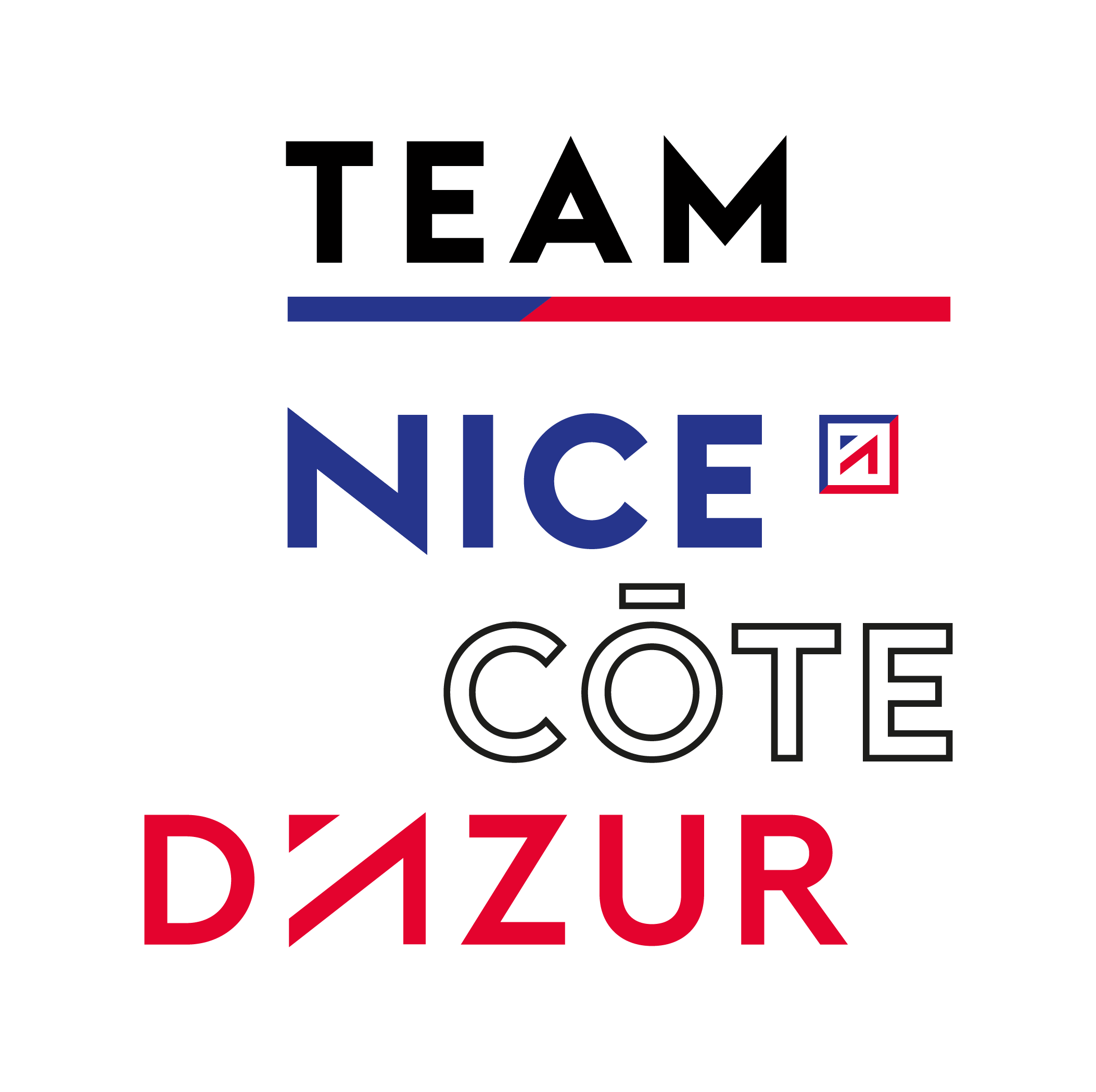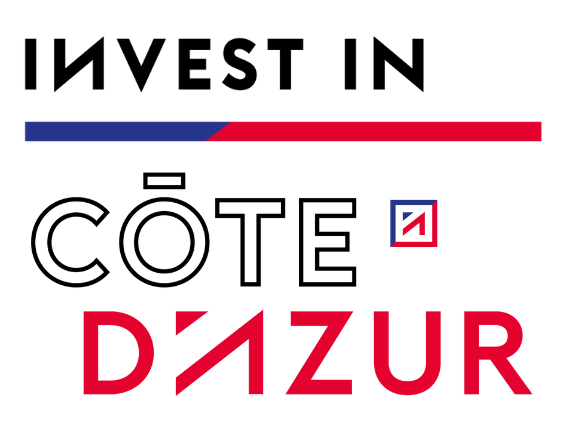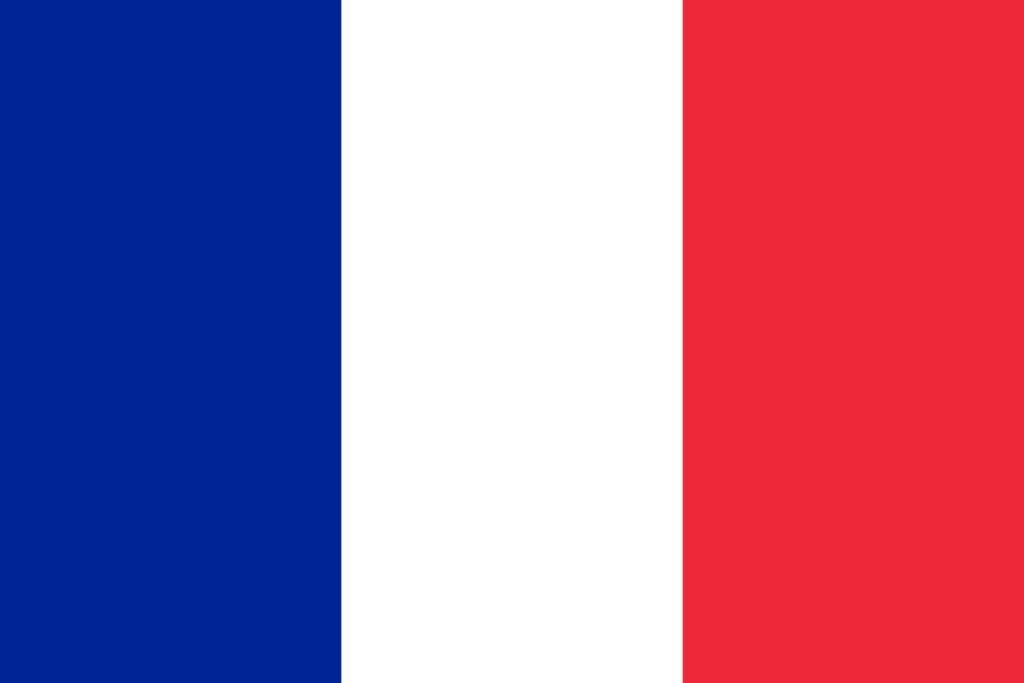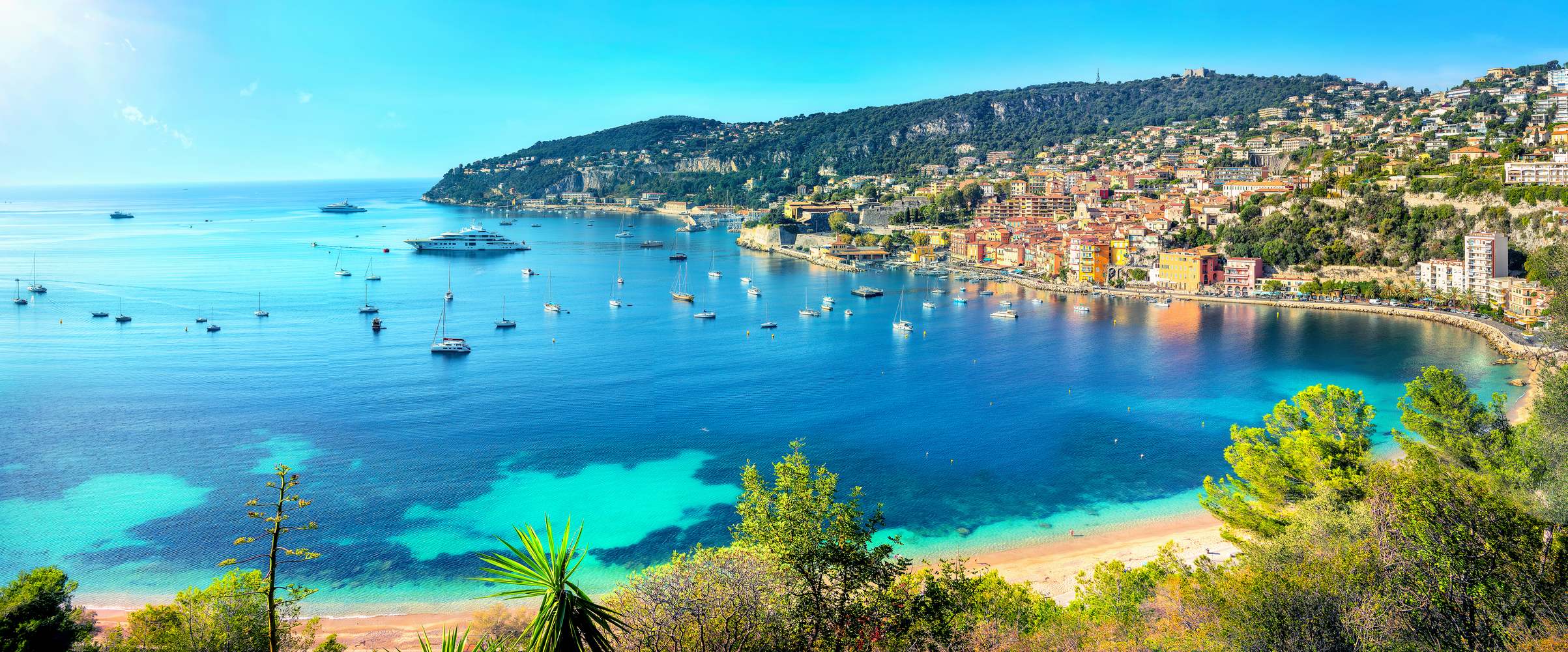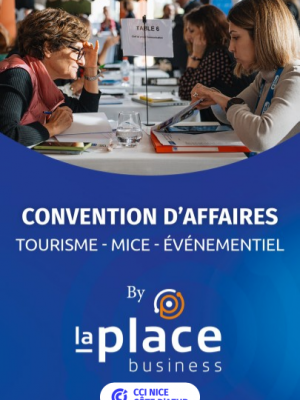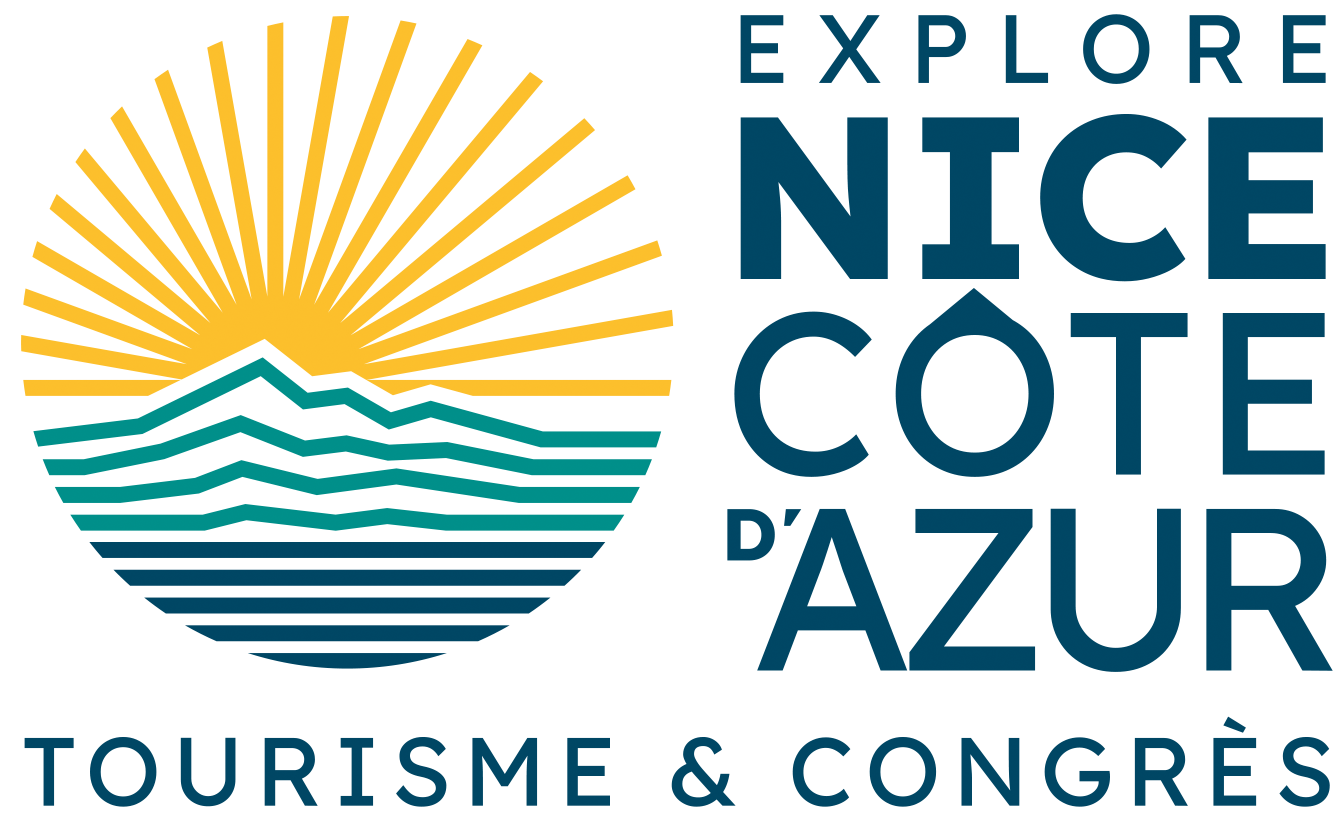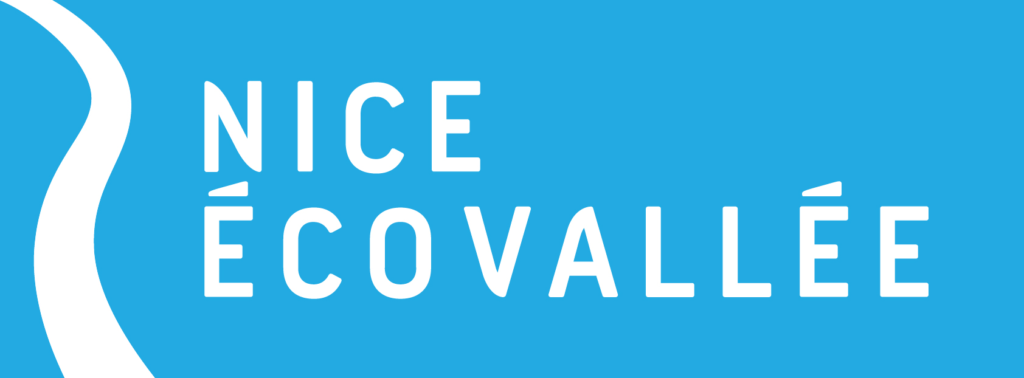Settling on the Côte d'Azur
Housing

Where to live
The Côte d’Azur is an impressive region in terms of landscape diversity and cultural heritage. Emblematic places include Nice, Antibes, Cannes, Menton, Eze, and Saint-Paul de Vence.
Discover the nicest places on the Côte d’Azur to find your accommodation.
Useful links
- Discover the cities of the Côte d’Azur:
https://cotedazurfrance.fr/en/discover/cities-on-the-cote-dazur/ - Discover the villages of the Côte d’Azur: https://cotedazurfrance.fr/en/discover/the-top-spots-on-the-cote-dazur/the-most-beautiful-hilltop-villages-on-the-cote-dazur/
Finding a long-term accommodation
Do you wish to rent or buy a property on the Côte d’Azur? Different solutions exist: real estate agencies, apartment hunters, specialized websites…
- Real estate agencies act as an intermediate between the owners and the future tenants. They provide a large property offer and guarantee certain services. Yet, additional agency fees need to be added to the rental when soliciting a real estate agency.
Useful links
- FNAIM : https://www.fnaim.fr/
- Century21 : https://www.century21.fr/
- ORPI: https://www.orpi.com
- ERA Immobilier: https://www.erafrance.com
- Nexity : https://www.nexity.fr
- Vealys: http://www.vealys.eu
- Chamber of Notaries of Alpes Maritimes: https://www.cr-aixenprovence.notaires.fr/fr/liens1/alpes-martimes.html
- Apartment hunters are professionals in charge of finding property for their clients by determining their needs first. Once established, the hunter can begin the apartment search.
Useful links
- Les Chasseurs immobilier – Nice : http://www.leschasseursimmobilier.fr/fr/
- VDB Associés : http://www.chasseur-immobilier-nice.com/
- Mon chasseur Immo: https://monchasseurimmo.com/chasseur-immobilier/sud-est/nos-chasseurs-immobiliers-a-nice/
- Specialized websites are platforms listing real estate offers currently available. Research can be done based on a certain number of criteria (price, location, size, etc.).
Useful links
- ParuVendu : https://www.paruvendu.fr/immobilier/
- Se Loger : https://www.seloger.com/
Find a temporary home
The website of the housing guide 06 offers a module “Temporary accommodation” that meets the needs of employees on mission, fixed-term contract, students-doctoral ….
Companies or employees concerned, can submit their ads for temporary housing search, by first asking for the creation of their access codes by mail to observatoire.immobilier.habitat@cote-azur.cci.fr. These requests are immediately transmitted to accommodation professionals, real estate agencies and serviced residences who have signed an engagement charter. These professionals have the obligation to respond directly to the company or the employee within two days, if they are able to offer a property for rent corresponding to the criteria requested. The effectiveness of this online service is based on the link between companies and their employees and accommodation professionals.
Useful links
- Online Guide to Temporary Accommodation for Employees in the Alpes-Maritimes:
http://www.guidedulogement06.com/temporary-housing/short-term-housing-service/?lang=en
Average prices & real estate market of the Côte d’Azur
Do you wish to settle on the Côte d’Azur and learn about the local real estate market and average prices?
Unlike most French metropoles, the real estate prices on the Côte d’Azur did not increase since 2018. The average selling price per sqm was 5,618€ for a new property and 4,045€ for a resale.
To learn more about the real estate market of the Côte d’Azur, we invite you to follow the links below.
Useful links
- Real Estate figures on the Côte d’Azur
https://barometre.immobilier.notaires.fr/maisons-anciennes/departement/alpes-maritimes/06/epci/metropole-nice-cote-d-azur/200030195
Housing benefits
Depending on your finances and the type of accommodation you live in, you may benefit from a social housing allowance or a customized housing assistance. To find out more, you can run a simulation or reach out to your nearest “Caisse d’Allocations Familiale” (CAF). The CAF allowances are:
- Personalized Housing Allowance (« Aide Personnalisée au Logement – APL »)
For people who have a housing with an APL convention : the owner signed an agreement with the French State to maintain a defined level of rent. The owner benefits from financial advantages in return. - Family Housing Allowance (« Allocation de Logement à caractère Familial – ALF »)
For people without a housing and with an APL convention, who have children (born or to be born) and married less than five years ago (both spouses must be under 40 years old). - Social Housing Allowance (« Allocation Logement Social – ALS »)
For people who cannot benefit from the APL nor the ALF. The granted allowance is calculated based on the financial and family situation, and the location of the housing.
Useful links
- Université Côte d’Azur student accommodation (French only):https://univ-cotedazur.fr/venir-a-universite-cote-d-azur/welcome-center/logement/aides-au-logement
- CAF:http://www.caf.fr/
- Housing benefit application:https://wwwd.caf.fr/wps/portal/caffr/aidesetservices/lesservicesenligne/faireunedemandedeprestation/demanderlaideaulogement/
- Housing benefit calculator:https://wwwd.caf.fr/wps/portal/caffr/aidesetservices/lesservicesenligne/estimervosdroits/lelogement
Overview of tenants & owners’ rights
Whether you are a tenant or an owner, you have rights and duties. Those rights and duties ensure the good execution of rentals, the requirements of a decent housing as well as the rent payment.
Tenants need to pay their rent and charges, take care of the daily maintenance, answer to deteriorations, etc.
Owners must take care of the house works and maintenance, provide a decent housing, ensure the peaceful enjoyment of the accommodation, be transparent about the defaults of the accommodation, etc.
Learn more about the different owners’ and tenants’ rights in France.
Useful links
- Rights and duties of tenants (French only):https://www.anil.org/votre-projet/vous-etes-locataire/location-vide/droits-et-obligations/
Education & child care

Child care
In France, school is mandatory for all children aged 6 to 16. The Ministry of Education defines France’s national educational curriculum. The school year lasts 10 months. It begins in early September and ends in late June or early July.
Many schools offer international school programs to enable children of any nationality to be taught within the French education system by offering them bilingual education.
At age 3, children attend Kindergarten (Maternelle). At 6 they attend Elementary School (Ecole Primaire, from “CP” to “CM2”).
Junior High School (Collège) starts from sixth grade until ninth grade, at the end of which students pass the exam “Brevet des Collèges” to access Senior High School (Lycée) and start their orientation program (Literature (L), Economics & Social Sciences (ES), Science (S), or Technology). Senior High School lasts 3 years. The “première” and “terminale” grades lead to the baccalaureate examination. The baccalaureate tests the knowledge and skills acquired by students by the end of their high-school years and is the first higher-education qualification.
Useful links
- Childcare options for children under school age:https://www.welcometofrance.com/en/fiche/childcare-options-for-children-under-school-age
- Find a structure via monenfant.fr:https://mon-enfant.fr/trouver-un-mode-d-accueil
- French Ministry of Education: https://www.education.gouv.fr/let-s-build-committed-education-system-together-100037
- Find information about childcare in your region:https://mon-enfant.fr/web/guest/faire-une-demande-de-mode-de-garde-en-ligne
- Child Care by UCA:http://univ-cotedazur.fr/fr/international/welcome-center/famille/garde-des-enfants
Primary & secondary education system in France
In France, school is mandatory for all children aged 6 to 16. The Ministry of Education defines France’s national educational curriculum. The school year lasts 10 months. It begins in early September and ends in late June or early July.
Many schools offer international school programs to enable children of any nationality to be taught within the French education system by offering them bilingual education.
At age 3, children attend Kindergarten (Maternelle). At 6 they attend Elementary School (Ecole Primaire, from “CP” to “CM2”).
Junior High School (Collège) starts from sixth grade until ninth grade, at the end of which students pass the exam “Brevet des Collèges” to access Senior High School (Lycée) and start their orientation program (Literature (L), Economics & Social Sciences (ES), Science (S), or Technology). Senior High School lasts 3 years. The “première” and “terminale” grades lead to the baccalaureate examination. The baccalaureate tests the knowledge and skills acquired by students by the end of their high-school years and is the first higher-education qualification.
Useful links
- French Ministry of Education (in French only) : https://www.education.gouv.fr/
Enrolling your child at school
If your child is enrolled in a public school on the Côte d’Azur, your place of residence will determine the school, middle school or high school that your child will attend. Registrations can be done with the establishments directly.
Regarding enrollments in private schools, registrations should be done with the Head of the establishment.
For further information:
Useful links
- Enrolling your child at an elementary school : https://www.education.gouv.fr/l-inscription-l-ecole-elementaire-6257
- Enrolling your child at a public middle school : https://www.education.gouv.fr/l-inscription-au-college-11987
- Enrolling your child at a public high school : https://www.education.gouv.fr/l-inscription-au-lycee-11597
International schools
In France, many schools deliver international school programs. Those programs allow children of any nationality to be taught within the French education system and benefit from a bilingual tuition at the same time.
The Côte d’Azur is the 2nd largest French region in terms of international schools after Paris. There are 18 schools with bilingual or international programs in 7 languages from kindergarten (from 30 months old) to high school (until 18 years old). The Higher education system in France offers many training courses with an international dimension: international partnerships, specialized Masters, multi-disciplinary programs…
Renowned language centers also provide their services to foreign students, and to companies wishing to improve the French level of their foreign employees.
Find out more about the international schools in France and in the region below:
Useful links
- Site de l’Education Nationale: https://www.education.gouv.fr/
- ABC School: http://www.abc-school-international.com/
- Ecole élémentaire « Sartoux »: https://ecole.ac-nice.fr/valbonne/elemsartoux/
- Ecole bilingue Montessori « Jardins des Soleils »: https://montessori-grasse.fr/
- Ecole Montessori « La Fontaine »: http://www.ecolelafontaine.com/accueil.htm?lang=EN
- Ecole Montessori « Les Colibris »: https://www.ecole-montessori-colibris.com/en/home-angl/
- Ecole Montessori Les Pouces Verts: http://www.montessori-les-pouces-verts.fr/
- Ecole internationale bilingue « le Pain d’Epice »: https://www.eibnice.fr/
- Ecole primaire des « trois Collines »: https://ecole.ac-nice.fr/val-siagne/ecole3collines/
- Centre International de Valbonne: http://www.civfrance.com/
- Ebica International School Academy and Campus: https://www.ebicaschool.com/
- Ecole Internationale de Nice: https://www.isn-nice.com/index.cfm
- Mougins School: http://mougins-school.com/
- Pain de Sucre: https://www.eibcagnes.fr/
- Pain de Sucre III: https://www.eibpegomas.fr/
- Institut Stanislas: https://www.stanislas-cannes.com/
- Collège Niki de Saint Phalle: http://www.college-niki-de-st-phalle.fr/
- Collège l’Eganaude: https://www.clg-l-eganaude.ac-nice.fr/
- Collège César: https://www.clg-cesar.ac-nice.fr/
- Collège Vernier: http://collegevernier.fr/
- Lycée Fénelon: http://www.institut-fenelon.org/
Driving & traveling

Getting your French Driving License or an equivalent
In France, there are different types of driving licenses depending on the type of vehicle.
The B Driving License (« Permis B”) offers the possibility to drive cars and small trucks. Two exams are required in order to get this license: the highway code and the driving exam.
Registering and preparing for the highway code exam can be done at 16 (or 15 as part of an early learning) with a driving school or as an independent candidate. Driving schools will automatically register you at an exam center. If you are an external candidate, you will need to register with a licensed center yourself.
After passing your highway code exam, your training will continue with driving lessons. Accompanied driving is also an option from 15 years old as part of an early learning or from 16 years old as part of a supervised driving.
If you are an external candidate, a relative can assist you during your training.
The practical driving exam is the last official step before obtaining your driving license.
Learn more about the different driving licenses and related exams in France :
Useful links
- Converting a foreign driving license in France :https://www.service-public.fr/particuliers/vosdroits/F1460
- The different driving licenses in France :https://www.service-public.fr/particuliers/vosdroits/F12096
- Highway code exam:http://www.securite-routiere.gouv.fr/permis-de-conduire/passer-son-permis/l-epreuve-du-code
Renting, buying or importing a car
Do you own a car abroad and wish to import it in France? Whether it is a new car or second-hand one, different formalities need to be fulfilled in the event of a car importation by an individual.
These formalities will be different depending to the origin of the car. If the car is imported from a member country of the European Union, the owner will be exempt from customs duties.
If the car is imported from a non-EU member country, from a department or territorial collectivity of French overseas, the owner will need to pay customs duties.
Useful link
- Importing your car in France from abroad:https://www.douane.gouv.fr/fiche/importation-par-un-particulier-dun-vehicule-achete-letranger-generalites
Do you want to rent or buy a car on the Côte d’Azur? The region offers many automotive dealerships which allow the purchase of a car, as well as many rental companies which are mainly located in the SNCF train stations or at the Nice Côte d’Azur Airport.
Useful link
- Car rental on the Côte d’Azur :http://www.nicetourisme.com/location-de-voiture
French Highway Code
Useful links
- Overview French Highway Code:https://www.onisr.securite-routiere.gouv.fr/en/road-safety-policy/highway-code
- French driving licence information:https://www.service-public.fr/particuliers/vosdroits/F2828
Transports on the Côte d’Azur
Useful links
- Welcome to the Côte d’Azur Transports Webpage:https://www.welcometothecotedazur.com/en/the-cote-dazur/transports/
Shopping, recreational activities and leisure

Shopping on the côte d’azur
There are many commercial areas in the Nice Côte d’Azur area. Depending on your needs, you will find a wide range of shops, from local craft to luxury boutiques.
The most popular commercial centers include Polygone Riviera in Cagnes-sur-Mer, Cap 3000 in Saint Laurent du Var, the Galeries Lafayette and Nice Etoile by the main shopping street Jean Médecin in Nice.
The « rue d’Antibes » is also one of the busiest shopping streets in the region, located in the city center of Cannes. Many luxury boutiques (Chanel, Hermès, Louis Vuitton…) can be found by the “boulevard de la Croisette” in Cannes.
Useful links
- Nice Convention Bureau « Meet in Nice » : https://en.meet-in-nice.com/shopping
- Polygone Riviera : https://www.polygone-riviera.fr/en
- Cap 3000 : https://en.cap3000.com/
- Nice Etoile : https://www.nicetoile.com/?lang=English
- Nice Valley : https://www.nice-valley.fr/
- Nice Côte d’Azur Tourist Office: https://en.nicetourisme.com/shoppinghttps://en.nicetourisme.com/shops-and-boutiqueshttps://en.nicetourisme.com/local-products-and-souvenirshttps://en.nicetourisme.com/large-stores
Events & Going out
The Côte d’Azur hosts more than 6,000 cultural and sporting events all year long. Nice-Cannes Marathon, Nice Jazz Festival, Nice Carnival, exhibitions celebrating great artists such as Dali, Picasso and Yves Saint-Laurent… Whether you are in the mood for a concert, an exhibition or thrills, the Côte d’Azur will meet your needs with its vibrant events calendar.
Some of the most popular events include the Cannes Film Festival, the “Grand Prix de Monaco (F1)”, the Nice Jazz Festival and the Jazz à Juan Festival, the Nice Carnival, the “Tour de France”, and the International Marathon of Nice.
Find out more about the events calendar below.
Useful links
- Agenda of events:https://en.nicetourisme.com/events-calendar
- Main events on the Côte d’Azur:
https://cotedazurfrance.fr/en/discover/the-top-events-and-festivals-on-the-cote-dazur/
Visiting
The Côte d’Azur is famous for its beaches, its mountains, its natural sites, its historical monuments, its traditional villages, etc. Hiking, photographic or cycling tour… Many discovery tours of the region are available for everyone and every taste. Whether you prefer the countryside rather than the city, whether you are looking for tranquility or thrills, you will be delighted.
Useful Link
- Culture and tours:https://en.nicetourisme.com/culture-and-visits
Sports and leisure
A lot of sports and leisure activities are available in the French Riviera. Whether you want to be by the seaside or in the mountains, looking for some quiet time or thrills, in search of festive events or an intimate setting, you will find an activity meeting your needs.
Cycling, golfing, surfing, diving, skiing, climbing… Shopping, Spa, Thalassotherapy… Concerts, picnics, cookery workshops… Alone, with your family or friends… Discover all available activities in the region for your every need.
Useful links
- Sports & leisure of Welcome to the Côte d’Azur ’s website:https://www.welcometothecotedazur.com/en/visiting/sports-leisure/
Local media and newspapers
Many local official media and journals are available on the Côte d’Azur to follow the economic, political and societal news of the region.
The main media and journals in French include: Nice Matin, Tribuca, le Petit Niçois, 20 minutes Nice, France Bleu Azur, et France TV Info PACA.
The media “Riviera” is also a regional reference to follow the news of the Côte d’Azur in English.
Useful links
- Nice Matin : https://www.nicematin.com/
- Tribuca : https://tribuca.net/
- Petit Niçois : https://lepetitnicois.net/
- 20 Minutes Nice : https://www.20minutes.fr/nice/
- France Bleu Azur : https://www.francebleu.fr/azur
- France TV Info PACA : https://france3-regions.francetvinfo.fr/provence-alpes-cote-d-azur/
- Riviera : http://www.riviera-press.fr/insider/
Meeting your compatriots

Associations
Are you an expatriate who recently settled on the Côte d’Azur for personal or professional reasons ? A lot of international associations help you meet new people, build a network, share your experiences, practice new activities, and learn more about the region and good deals.
Some of the renowned local expatriate organizations include Internations, “l’Alliance Française de Nice” and IWCR (International Women’s Club of the Riviera). Depending on your interests, the Meetup app will also help you identify local events and groups such as “Nice Expats” and “Nice Nomads”.
The online platform of the Nice Côte d’Azur Associations also lists all local organizations (charity, culture, sports…) that you can join.
Useful links
- Internations Nice : https://www.internations.org/nice-expats
- IWCR : https://www.iwcr.org/
- Meetup App : https://www.meetup.com/
- Nice Côte d’Azur Associations : https://associations.nicecotedazur.org/
- Association Réseau expat Nice: https://www.expat.com/fr/destination/europe/france/nice/
French lifestyle

Rules of politness and code of conduct
France is the country of human rights and freedom of expression. The art of French living is internationally renowned and unique.
There are some basic rules to introduce yourself when greeting someone. In particular, it is important to look at your interlocutor straight in the eyes and greet them with a “hello” (“bonjour”), hello Sir” (“bonjour Monsieur”) if it is a man or “hello Madam/Miss” (“bonjour Madame / Mademoiselle”) if it is a woman and depending on their age. In France, it is also a habit of greeting someone with “la bise”. Yet, this is not applicable in every situation. “La bise” is usually reserved for your relatives and friends. Provided you do not know your interlocutor, a handshake will be more appropriate. You should also say “vous” to people you meet for the first time or barely know and “tu” to people closer to you. Other basic politeness rules should be followed, such as saying “thank you” (“merci”), “please” (“s’il vous plaît”) and “goodbye” (“au revoir”) when applicable.
Fine dining is also very present in the French way of life. The meal itself and the shared convivial moment that comes with it are equally important. Time and attention should be payed to meals, same as offering guests a warm welcome, decorating a room and a table, finding the perfect food and wine pairings. French cooking is distinguished by its refinement and creativity.
Here are some tips to keep in mind when invited to share a meal in France: remember to thank your host for the invitation when you arrive, it is well seen to bring a small gift such as a bottle of wine, cheese, a dessert or flowers (only for a woman), waiting for everyone to be served before starting to eat, participate in the conversation without monopolizing the discussion nor cutting someone off.
Find out more below about rules of politeness in France to apply in your daily life.
Useful links
- Campus France :
https://www.campusfrance.org/en/French-customs-traditions-cliches
https://www.campusfrance.org/en/art-of-living-a-la-francaise - Centre International d’Antibes :https://www.cia-france.com/blog/culture-french-traditions
Festivals and traditions
The French Riviera has a rich cultural history and organizes traditional as well as more contemporary events all year long. Among the most popular annual events happening in the region are the Nice Carnival, one of the largest carnivals in the world taking place each winter, the “Fête des Mimosas”, “Fête du Citron”, as well as summer music festivals starting from mid-July, such as the Nice Jazz Festival, the Jazz à Juan Festival and the “Nuits du Sud” in Vence.
Useful links
- CRT Côte d’Azur France:
https://cotedazurfrance.fr/en/discover/the-top-events-and-festivals-on-the-cote-dazur/
https://en.nicetourisme.com/events-calendar - Nice Côte d’Azur Convention Bureau :https://en.meet-in-nice.com/festivities-in-nice
- Nice Jazz Festival :http://www.nicejazzfestival.fr/en/
- Jazz à Juan :https://www.jazzajuan.com/en-us/home.aspx
- Going out in Nice: https://www.nicetourisme.com/sortir-a-nice
Gastronomy
The traditional cuisine of Nice, also known as “cuisine nissarde”, is Mediterranean inspired. This type of cooking is a transition from Provence to Italy. There are more than 200 original dishes. A lot of them are made with local products such as Mesclun. Nice’s cuisine is rich and varied, and largely uses vegetables, olive oil and fish (anchovies, sardines and sea bream mainly).
The most famous local specialties include :
- The niçoise salad : made with mesclun, tomatoes, olives and anchovies.
- The « socca » : pancake made with chickpea flour served hot.
- The « pissaladière » : bread dough filled with onions, anchovies and black olives
- The « pan bagnat » : sandwich with tuna, olives and crudités, drizzled with olive oil.
- The « tourte de blette » : made with blettes. Can be served as a salted dish or as a sweet dessert
- The « farcis niçois » : made with vegetables (zucchinis, tomatoes, onions, pepper) and filled with stuffing. Can be served hot or cold.
Useful links
- Nice Côte d’Azur Metropolitan Convention and Visitors Bureau :https://en.nicetourisme.com/gastronomy
Integration of the spouse

Côte d’Azur companies recruit international staff and therefore want to facilitate their integration, not only administratively, but also by helping their spouse to find a job.
The social and professional integration of the husband / wife is indeed a key success factor in the maintenance of international employees in the company.
The Chamber of Commerce and Industry Nice Côte d’Azur, eDRH and APEC offer a support program for foreign spouses composed of employment assistance, tutoring on research techniques of employment or volunteering in the Alpes Maritimes department.
Useful Link
- EDRH online service for spousal support in job search:http://www.edrh-sophiaantipolis.com/public/docs/page/3.pdf
Learning French

Local Associations and schools to help you learn and practice French
You are an expatriate who recently settled on the Côte d’Azur and you want to learn the basics of French language for better communication at work and in your free time ? Several renowned training organizations and association based on the Côte d’Azur could help you, depending on your linguistic profile and needs !
Useful links
- Francophonia and its international network of French speaking teachers (in partnership with Team Côte d’Azur) :https://www.universitesdefrancophonia.com/
- The Alliance Française de Nice, offers General French courses, French for Specific Purpose courses (business, trading, legal, tourism, arts), In-Company Training courses, Literacy courses and Personalized programs for all levels, all year long. : https://af-nice.fr/
- Institut Alpha.b à Nice, only French school in Nice with the 3 most important national and international accreditations: Quality FLE, IALC and Eaquals :https://www.alpha-b.fr/en/
- Centre international d’Antibes, with courses for adults, French language camps for kids and teens, and tailored short French courses for school groups :https://www.cia-france.com
